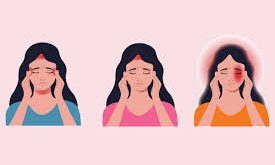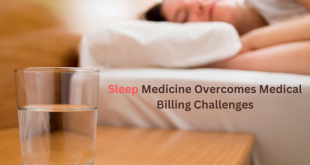A neurodevelopmental disorder, Attention Deficit Hyperactivity Disorder (ADHD) impacts millions of children and adults globally. A growing amount of evidence indicates that nutrition has a major impact on ADHD behaviors, even if medication and therapy are frequently used to manage symptoms. People with ADHD may have greater attention, better emotional regulation, and less symptoms if they follow a nutrient-rich diet and avoid particular foods. This article examines the connection between nutrition and ADHD, emphasizing items to avoid, important nutrients, and useful dietary techniques for managing symptoms.
Recognizing the Connection Between ADHD and Nutrition
For the brain to work at its best, it needs a steady flow of nutrients. While a balanced diet helps improve emotional stability and cognitive function, deficiencies in certain nutrients can make symptoms of ADHD worse. Another factor is the gut-brain connection; there is mounting evidence that gut health has a direct impact on behavior and brain function.
Essential Nutrients for ADHD Management
The Fatty Acids Omega-3:
- Essential fats known as omega-3s are critical for brain function. They are essential for lowering inflammation and neurotransmitter function.
- Sources include walnuts, chia seeds, flaxseeds, and fatty fish (mackerel, salmon).
- Benefits: Studies show that taking omega-3 supplements can help people with ADHD pay better attention, be less impulsive, and feel happier.
Protein
- The synthesis of neurotransmitters that control mood and attention, such as dopamine and norepinephrine, depends on protein.
- Sources: Nuts, dairy, lentils, eggs, and lean meats.
- Benefits: Eating a high-protein breakfast will help you stay focused throughout the day and avoid energy crashes.
Iron
- Dopamine synthesis and oxygen transport both require iron. Poor concentration and increased hyperactivity have been associated with low iron levels.
- Lentils, spinach, red meat, and fortified cereals are some of the sources
- Benefits: Reduced symptoms of ADHD and enhanced cognitive performance are two outcomes of adequate iron levels.
Zinc
- Zinc promotes brain signaling and neurotransmitter activity.
- Cashews, chickpeas, meat, and pumpkin seeds are some of the sources.
- Benefits: Studies have linked zinc supplementation to a reduction in impulsivity and hyperactivity.
Magnesium
- Magnesium is essential for nerve health and stress management.
- Leafy greens, whole grains, seeds, and nuts are some of the sources.
- Benefits: Magnesium lowers irritation and soothes the nervous system.
Complex of Vitamin B:
- B vitamins are necessary for both brain function and energy production.
- Sources include green vegetables, dairy products, eggs, and whole grains.
- Benefits: B vitamins promote general brain function by lowering fatigue and regulating mood.
The Effects of Artificial Additives and Sugar
Overindulgence in sugar and chemical additives can exacerbate hyperactivity and mood swings, which are hallmarks of ADHD. High concentrations of refined sugar, artificial coloring, and preservatives found in processed foods can disrupt brain function.
High-Glycemic Foods:
White bread, soda, and sugary snacks raise blood sugar levels quickly, which can result in energy slumps and irritation.
Artificial Additives:
Children’s hyperactivity has been connected to specific artificial colorings and preservatives.
It is suggested that whole, unprocessed foods such fruits, vegetables, and whole grains be used in favor of processed snacks.
Gut Health’s Contribution to ADHD
Mental health is significantly influenced by the gut-brain axis. Brain function can be positively impacted by a healthy gut microbiota, whereas symptoms of ADHD may be exacerbated by an unbalanced gut.
Probiotics:
These beneficial microorganisms are present in fermented foods such as kimchi, sauerkraut, and yogurt.
Prebiotics:
- Foods high in fiber, such garlic, onions, and bananas, support healthy gut flora.
- Benefits: Having a healthier gut may boost mood, attention, and anxiety levels.
- Nutritional Techniques for Managing ADHD
Meals That Are Balanced:
- Every meal should include complex carbohydrates, healthy fats, and proteins to keep blood sugar levels stable and energy levels high.
- For instance, quinoa, roasted veggies, and grilled chicken.
When to Eat:
- Frequent meals and snacks improve focus, lessen irritation, and avoid blood sugar falls.
- Drinking enough water
- Cognitive function can be affected by dehydration. Encourage drinking enough water all day long.
Diets for Elimination:
- Eliminating possible allergens including gluten, dairy, and artificial additives helps some people.
- Method: Eliminate specific meals gradually while keeping an eye on any changes in symptoms.
ADHD Supplements
Supplements can help treat certain deficiencies, but whole foods are the best source of nutrients.
- Omega-3 Supplements: One efficient method to increase omega-3 consumption is to consume fish oil capsules.
- Multivitamins: Make sure you’re getting enough of the important vitamins and minerals.
- Zinc and magnesium: Specific supplements help lessen hyperactivity and increase focus.
Research and Case Studies
Several studies have emphasized the importance of diet in managing ADHD:
Study 1:
Children that took omega-3 fatty acid supplements shown behavioral and attentional gains.
Study 2:
A sizable portion of youngsters with ADHD showed less hyperactivity after giving up artificial coloring.
Obstacles and Things to Think About
- Nutrition is a useful tool, but it shouldn’t take the place of conventional therapies like medicine and counseling. The best results from nutritional therapies come from a complete plan for managing ADHD.
- Individual Differences: Different people have different nutritional demands, so what works for one person might not work for another.
- Access to Nutrient-Dense Foods: Socioeconomic considerations may restrict access to foods high in nutrients.
In conclusion
Because it improves focus, stabilizes mood, and supports brain function, nutrition is essential for managing ADHD symptoms. The general well-being of people with ADHD can be greatly enhanced by consuming meals high in nutrients, avoiding artificial additives, and encouraging gut health. A balanced diet provides a comprehensive approach to managing ADHD when paired with medication and therapy, enabling people to live healthier, more fulfilling lives.







